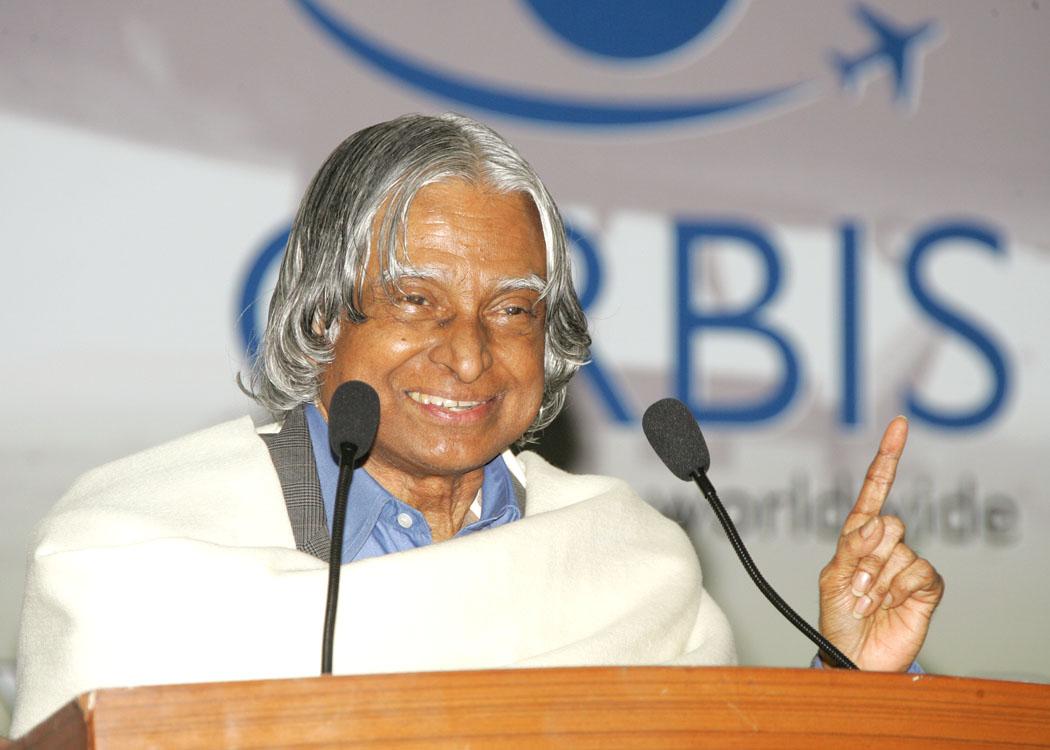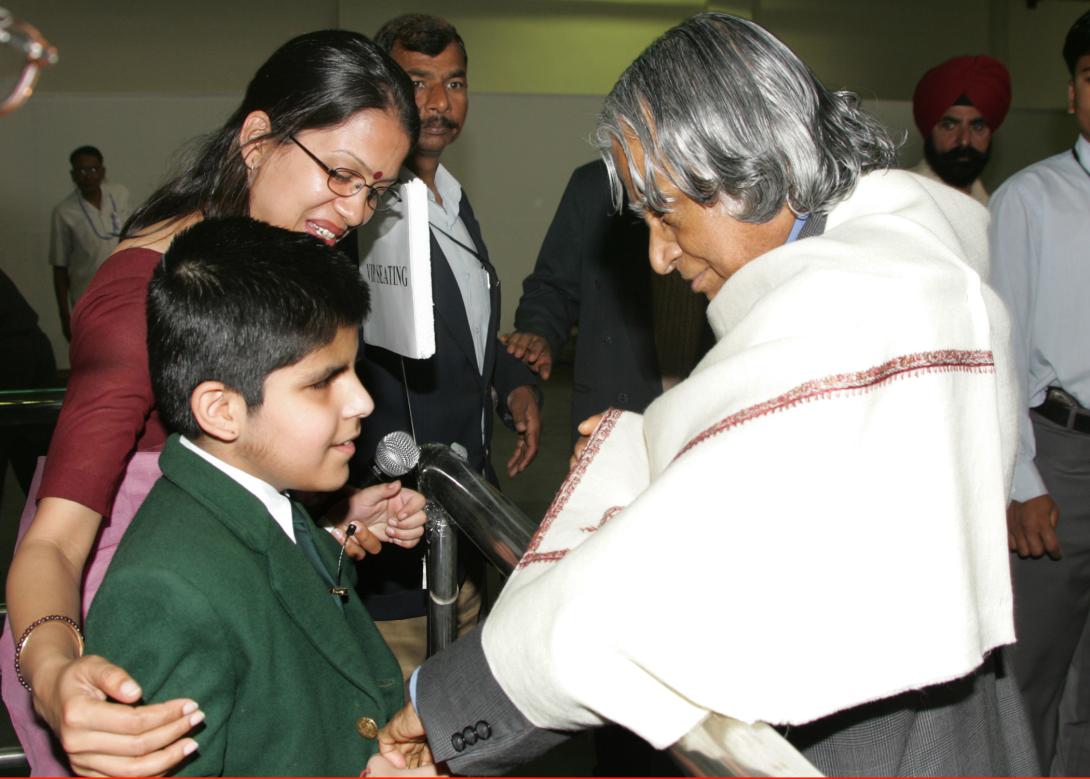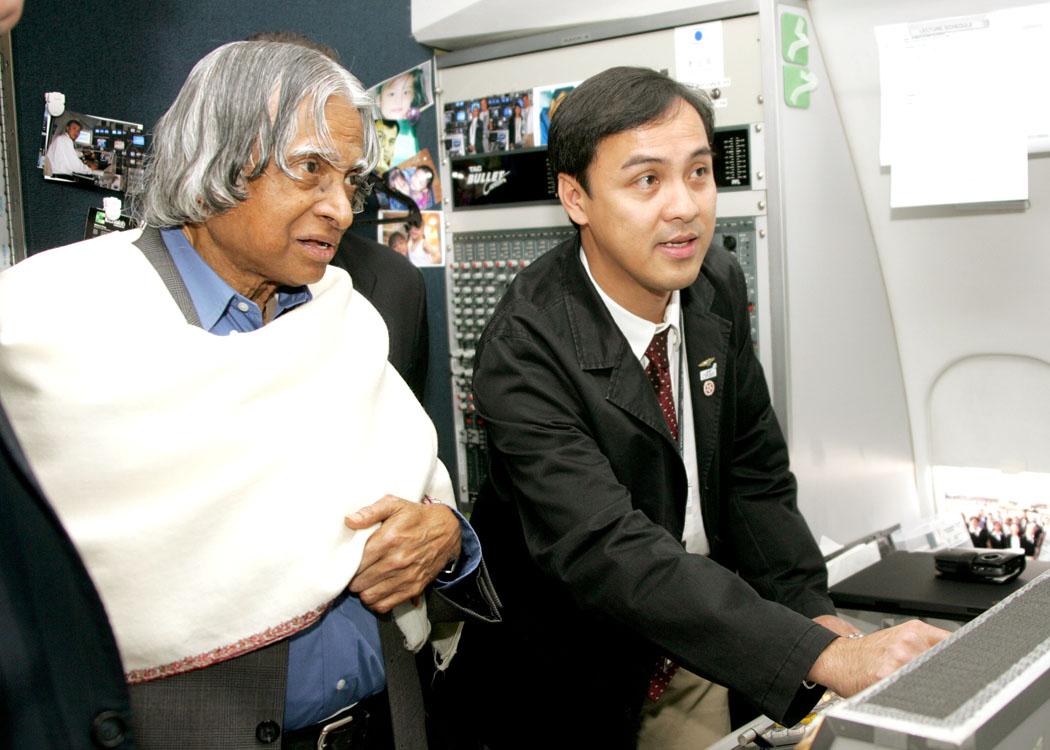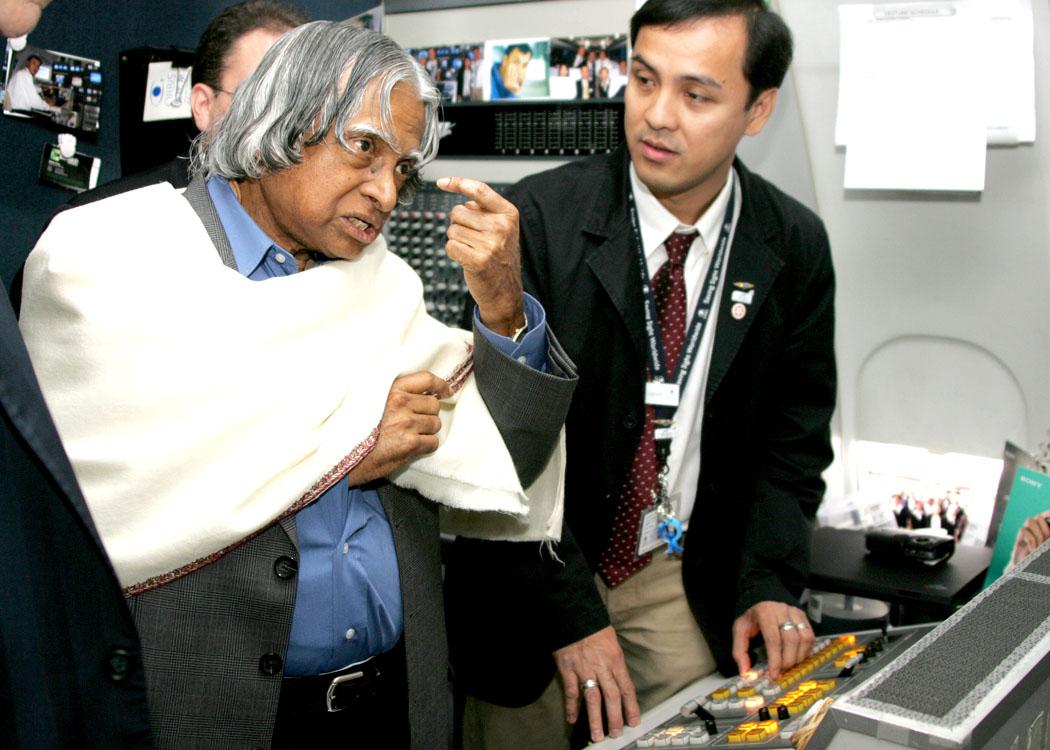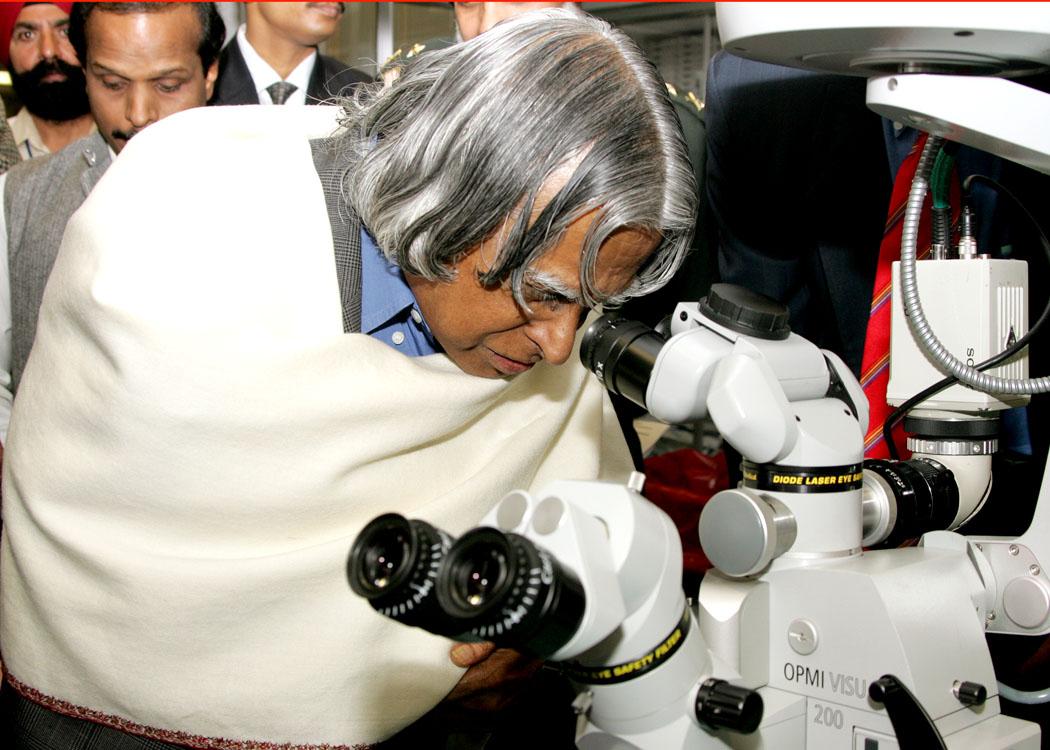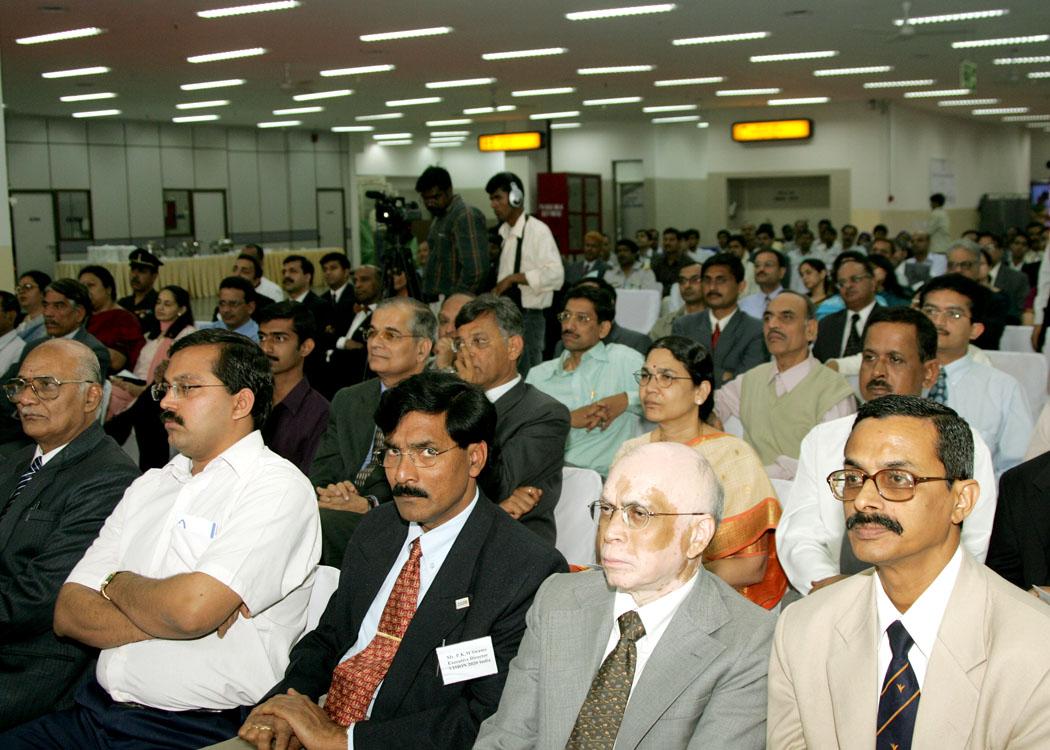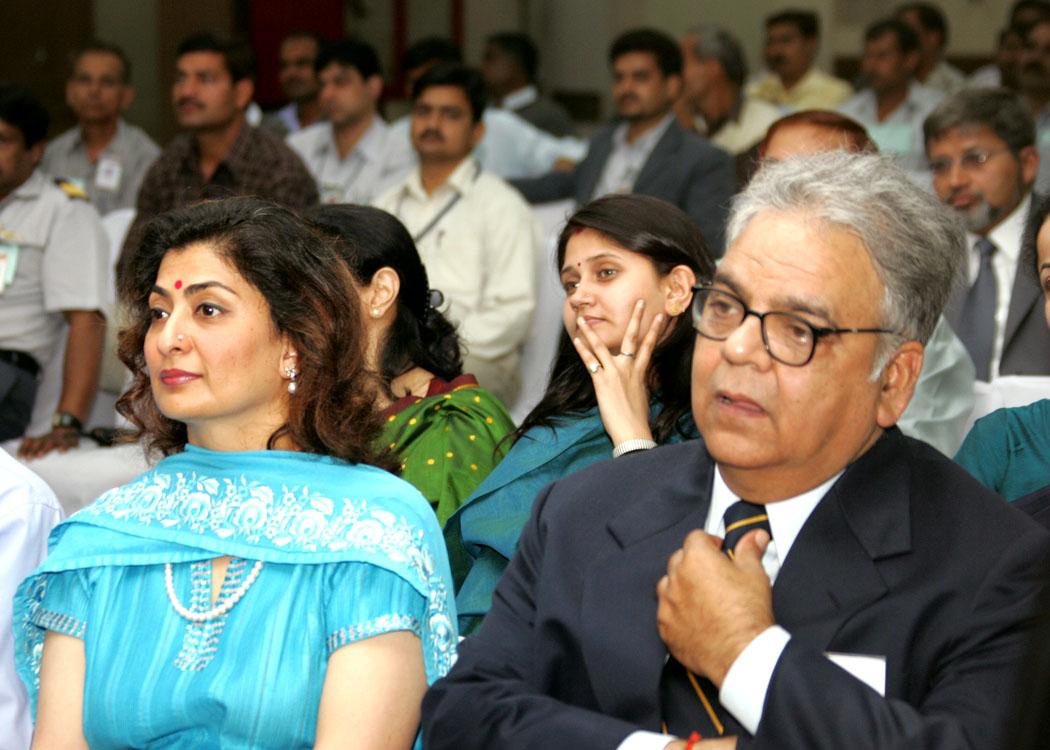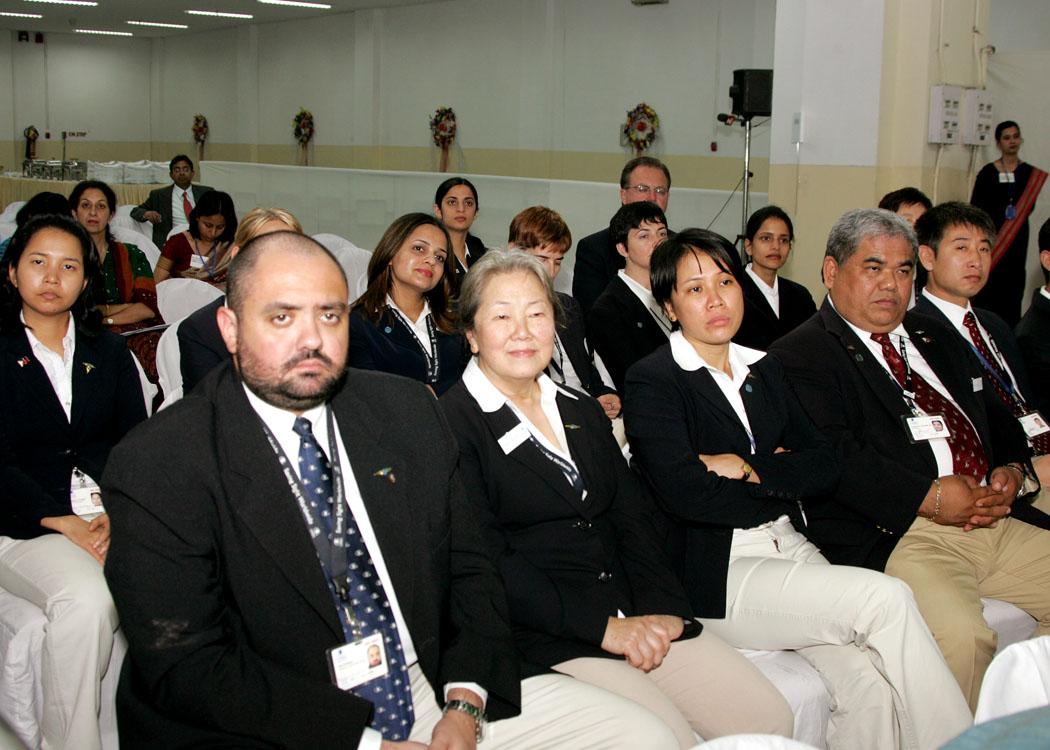Address at the Inauguration of Orbis Dc-10 Flying Eye Hospital Programme
New Delhi : 10-03-2005
I am delighted to participate in the inauguration of ORBIS DC-10 Flying Eye Hospital programme organized by ORBIS International India country programme. I greet the organizers, ophthalmologists, foreign delegates, distinguished medical practitioners and distinguished guests on this occasion.
Airborne Ophthalmic Mission
I appreciate the airborne pioneering service rendered by ORBIS DC-10 Flying Eye Hospital during the last two decades. I understand ORBIS came to India for the first time in 1988 and worked in Hyderabad and New Delhi. The Flying Eye Hospital(FEH) provided an enabling environment for training and actual treatment for some of the eye care professionals from India. Since then there has been number of visits by ORBIS and today has a dedicated mission for mitigating avoidable childhood blindness and corneal blindness in the country. I would like to discuss the topic ?Eye Care is a Noble Mission?.
Over the last two decades, India has made significant advances in eye care and it is recognized as one of the leaders in eye care. India has sixteen ?Child Sight Centres? spread in different parts of the country of which twelve are developed by ORBIS. The country recognizes this important contribution by ORBIS and its dedicated team of doctors.
The magnitude of eye care
I had a discussion with Dr. Gullapalli Nageswara Rao President of International Agency for the Prevention of Blindness ? Vision 2020, whose mission is to remove blindness from the World.
There are nearly 50 million blind people in the World today and 150 million with low vision. Out of this 200 million, 12 million are in India and the number in rural areas accounts for 8.4 million?. How to address this problem?
The pyramid model as focused by Dr.G N Rao involves creation of a four tier system of treatment namely primary, secondary, tertiary and advanced tertiary care. In India, we have 20% vision centres for primary care, 70% service centres for secondary care, 50% training centres for tertiary care and 25% centres of excellence. We need to double the investment to provide full compliment of eye care facility for all the four sectors with participating eye centres, government agencies and international partners like ORBIS.
Importance of treating low vision affected people
As you are all aware, blindness is predominantly an age-related problem, with the prevalence rising from childhood to old age. It is estimated that 5 out of every 100 persons over 60 years of age are blind and that 7 out of 1000 people in the world are blind. It has been roughly estimated that the direct cost of blindness to our society is of the order of $ 25 Billion per year whereas only $92 million are needed every year to control the three major causes of blindness. Therefore, we can see that the prevention of blindness is one of the most cost-effective public health interventions which are available in the field of health care. To this end, the efforts of initiatives like those being made by ORBIS Flying Eye Hospital will help the community at large to gain from the rapid advances being made in the field of eye care and to reduce the costs to our society from this affliction. Normally, low vision people tend to loose sight if it is not taken care of at the right time. All the national eye care centres and ORBIS has to focus more on treating in large scale low vision people in time with participating countries.
National Programme
In India, we have a National Programme for the Control of Blindness which was started in the year 1976. The programme aims to reduce the prevalence of blindness from 1.4 % to 0.3 %. The main objectives of this programme are to develop eye-care infrastructure throughout the country and to build institutional capacity for eye care with expansion into underserved areas. An important component of this national programme is also to develop the human resource capacity for eye-care at all levels. It is in this context that the training programme of ORBIS will facilitate quality service delivery by empowering, equipping and building human resource capacity of different organisations connected with the field of eye care in India.
ORBIS India Programme
ORBIS India Programme focuses on Capacity building and Advocacy. Capacity building includes training and upgradation of skills of Ophthalmologists and Paramedics, Eye care managers and Eye care Finance management. Advocacy includes initiation and implementation of vision 2020 programmes, strengthening Govt. hospitals, generating and mobilizing funds for blindness eradication programmes, supporting training programmes and influencing change in Medical education curriculum.
Mission of ORBIS Flying Hospital
Although, the role of the DC-10 plane is limited in cities like Delhi and Chennai which have very good standards of eye care, the plane serves a larger purpose of creating awareness of eye care, training of Ophthalmologists, establishing international norms of nursing and Operation Room standards by training nurses and paramedics. Along with the ORBIS programmes, National Workshops on Corneal and Childhood Blindness are also being arranged with involvement of Govt. and NGO bodies to formulate policies for the country. A local host committee invites the plane and NPCB (National Programme for Control of Blindness) is supporting the DC-10 programme.
Along with this I understand that ORBIS is going to create eye care centres in Patna, Sitapur, Ahmedabad and Bhopal in collaboration with Rajendra Prasad Eye Care Centre of All India Institute of Medical Sciences. I would suggest early action be taken to commission these centres which will go a long way in providing eye care to this needy area.
Eye doctor as teacher
Recently, there was a meeting of cured ophthalmic patients, their doctors and a few social workers. One important result was discussed. The relationship between the patient and doctor extends to patients? family and doctor in medical care. This in turn, transmits effective messages from one family to another family on advice to prevent the diseases, necessity of periodic checks, the dietary habits and the need for life style changes including eye exercises for good health. Actually, I believe this good contact between the doctor and patients is comparable to that of a teacher and student. I request every ophthalmologist to play the role of a teacher in advising every family and visiting friends, on eye disease prevention and methods to maintain quality vision. I hope you all will find time for this noble action.
Conclusion
I would suggest following three missions be taken up by ORBIS to promote eye care in India.
1. So far ORBIS has not been undertaking low vision services. I would suggest that a low vision service should be one of the prime areas for ORBIS during the next five years with partnership from national eye care agencies.
2. Airborne Ophthalmic Services can be multiplied with cooperation between India?s eye care centres, ORBIS services and ISRO through a tele-eye care mission. It should be launched in the nation say in 200 centres particularly in the rural areas in North, East and West. This involves tele-connectivity through satellite communication in partnership with the eye care community. I suggest the International Agency for the Prevention of Blindness and Airborne Ophthalmic Hospital and Ophthalmic Centre can work together in this mission.
3. The eye doctor can play the role of a teacher to the patient and the family and friends.
4. The national eye care agency in collaboration with ORBIS DC-10 programme can consider an airborne, road borne and mobile eye care service for difficult regions in the country.
My best wishes to all the members of the ORBIS team for success in their mission of eradicating blindness internationally.
May God bless you.

